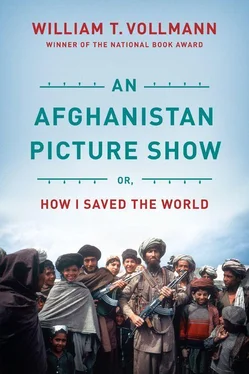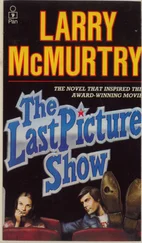
A THOUGHT (1987)
Strange as it may seem, I did not understand the nightmare that I was seeing. Partly it was because I was sick that I was sometimes little more than a data collector; partly it was because I was so young that the exoticism of the experience made the greatest impression on me; partly it was because, thanks to my background, I had little understanding of physical suffering. Now, when I reflect upon this school without books, open on a day so hot that the other school was closed — this school without water, this single class for all students irrespective of age (I saw six-year-olds there, and I saw ten-year-olds, all reciting the same things over and over) — I want to weep — no, to do something — but I don’t know what. As for the Young Man, I don’t remember precisely what he thought, but the plain of his speculations had already become flat, sandy ground, oval-shaded by a single tree, on which grazed scrawny cattle light and dark. Tents and little stone houses lay along the ridges. It was very hot.
GREAT STRIDES FORWARD [2]
“In education,” said my informant in 1985, “the English language was the main foreign language. Now Russian is. But they do not call it a foreign language; they call it ‘the language of our big neighbor to the north.’ They are gradually eliminating English in Afghanistan. The puppet government is on good terms with the Cuban government, so now Spanish is taught. — This is a new phenomenon on our cultural scene,” he said sarcastically. “They still have a German Department, but it is now an East German Department.”
Surely thy Lord [2]
In every camp he went they were hospitable to him (except, as I said, when he took pictures of their women). They made him tea and served him bread and meat, always waiting until he had had his fill before they ate. Some of them worked with their trucks and tractors, hauling things. A man laughed and showed him how to plait a rope from grass. The boys played ball. Never did he forget the man laughing so happily ha-ha! showing all his white teeth, as he braided grass into rope to show the Young Man, and his elder son watched the Young Man with a polite upward-bowing of lips but the younger son stood half behind, resting his head dreamily on his brother’s shoulder…
The sum of his failures almost, but not quite, confronted him — like the turbaned man who rode his donkey home to the straw-mud-straw house, where he saw the Young Man and stared at him, his two small boys staring at the Young Man also, their arms around each other, and far away, behind the stone wall, a red-veiled woman turned away.
* Tea and cooking oil.
† In 1987, there were 3.5 million registered Afghan refugees in Pakistan alone. By 1989, when the Soviet troops left, the number was near 4 million.
‡ The five deletions here were made by Abdullah.
§ I was told that vocational education was not permitted by the host country, for fear that still more Pakistanis would be displaced in the labor market by Afghans.
In order to understand this, we need also to consider the following: suppose B says he knows how to go on — but when he wants to go on he hesitates and can’t do it: are we to say that he was wrong when he said he could go on, or rather that he was able to go on then, only now is not? — Clearly we shall say different things in different cases. (Consider both kinds of case.)
WITTGENSTEIN, Philosophical Investigations, I.181
Alaska
While an increasingly desperate Hafizullah Amin was conducting pacification operations in every province, while his superior, Mr. Nur Muhammad Taraki, began the last six weeks of his presidency (and, incidentally, his life), while Babrak Karmal waited in Moscow, while the Soviet Union was bland (for this was still five months before the invasion of Afghanistan stunned and horrified us), in the month of July I first visited Alaska. At that time I had no suspicion that I ever might go to Afghanistan. We were on the ferry from Seattle to Haines, my friend Erica and I. She was older. The inland passage narrowed, and on either side of us evergreen forests ascended mountain shoulders until they met snow, white fogs lying in all the hollows, and we passed rocky grassy beaches and the wind smelled of salt. — When the two shores began to draw away from each other again, the sky to open, we stood on the cabin deck, our hair beating against our faces. We could see for a long way. The windbreakers of the passengers standing at the rail fluttered violently.
Erica pointed down. “If your child fell overboard, would you jump down and save it?”
“If it were a wanted child,” I said flippantly.
“If it wasn’t, you’d just let it drown?”
“Sure,” I said, straight-faced.
When I was growing up, my little sister drowned because I hadn’t paid attention.
MY LEADER
“This is the life!” laughed Erica, who had taught at Outward Bound. Her hair was a wild cloud of curls. She had a ruddy, happy face; her skin was so thick, she said, that no mosquitoes could bite it. She was as strong as a bear. How many weaklings had she saved?

Drawn in my notebook by a ten-year-old Afghan girl — parents executed by the Soviets
ABOVE THE RIVER
Tenting in the rain with Erica was always the best part. We were all set up, which was a relief, because I was bad at that and other things; we were resting, going nowhere, and I could feel as though I were in the Arabian Nights , the tent covered with tapestries and furs, perhaps, with a brazier of incense between our sleeping bags, and a silver bowl of dates (actually, we ate them from one of Erica’s ziplock plastic bags), and when she slept she kept on smiling, which made me happy, too — the Land of Counterpane was not dangerous at all — we had hours left before I’d have to prove myself again, a good respite to tell each other fantastic stories (the rain being reliable that way); so Erica told me about being married and climbing the mountain in South America that later got named after her, Pico Erica; and being in the Peace Corps and snorting heroin and breaking into people’s houses solely to steal ice cream and living with the Navajos and all the other things she had done that left me wide-eyed and determined to do things like that (and at the very end of that year, when I was reading the Christmas newspapers in Switzerland, and there it was in black and white and French: Afghanistan had been invaded! I suddenly thought, “Someday I would like to go there,” and it was not because Afghanistan was Afghanistan, but because Afghanistan was invaded); and my tentmate snuggled her sleeping bag up against me and asked me to rub her back and I said that I would and she laid her head on my knee and said, “Go ahead, scratch! Long, hard strokes, all the way down my back! Harder!”—for she was from a military family.
“You really want me to scratch your back?” I said.
“You got it!”
“All right,” I said dubiously.
“What do you mean, ‘all right’? My body is different from yours.”
“It must be.”
… “It’s getting monotonous now.”
“Sorry.”
… “Oh, that feels good.”
Читать дальше














